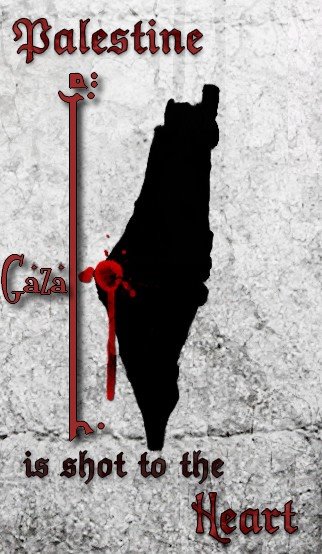 ♪ Or أو ♪
♪ Or أو ♪
Artist : Rasha Sheikh Eldin رشــا شـيـخ الـديــن
.
♪
Country : Sudan الــسودان
♪
Country : Sudan الــسودان
♪
Melodies :
.(1). Aguis Mahasnik Biman 1 أقــيس محاسنــك بمن
With Whom Can I Compare You - Con quién comparo tus virtudes
.(2). Azara Al Hay يا عــــذاري الحــــــــي
Girls Of The Quarter - Mozas del barrio
.(3). Nari نــــــاري
My Fire - Mi fuego
.(4). Salib Fuadi ســالــب فــؤادي
You Stole My Heart - Has cautivado mi alma
.(5). Leali لــيالــي
Nights - Noches
.(6). Diya Wo Ailan سهــــــــــراي " أغنية نوبية "
Is It Enough, Oh My Heart - Para, corazón mío, de amar
.(7). Hadada لولولو " أغنية نوبية "
Lullaby - Nana
.(8). Al Sheikh Seiyaro يا ناس بريدو .. البريد الشيخ سيرووووا
The Skeikh Is Coming - El cortejo de Ashej
.(9). Sahib Alme'irag يا صاحب المعراج
The Messenger - El Messenger
.(10). Aquis Mahansnik Biman 2 أقــيس محاسنــك بمن
With Whom Can I Compare You - Con quién comparo tus virtudes
.(1). Aguis Mahasnik Biman 1 أقــيس محاسنــك بمن
With Whom Can I Compare You - Con quién comparo tus virtudes
.(2). Azara Al Hay يا عــــذاري الحــــــــي
Girls Of The Quarter - Mozas del barrio
.(3). Nari نــــــاري
My Fire - Mi fuego
.(4). Salib Fuadi ســالــب فــؤادي
You Stole My Heart - Has cautivado mi alma
.(5). Leali لــيالــي
Nights - Noches
.(6). Diya Wo Ailan سهــــــــــراي " أغنية نوبية "
Is It Enough, Oh My Heart - Para, corazón mío, de amar
.(7). Hadada لولولو " أغنية نوبية "
Lullaby - Nana
.(8). Al Sheikh Seiyaro يا ناس بريدو .. البريد الشيخ سيرووووا
The Skeikh Is Coming - El cortejo de Ashej
.(9). Sahib Alme'irag يا صاحب المعراج
The Messenger - El Messenger
.(10). Aquis Mahansnik Biman 2 أقــيس محاسنــك بمن
With Whom Can I Compare You - Con quién comparo tus virtudes
.
♪
♪
.
Rasha grew up in the musical crossroads of Khartoum, Sudan, where the Islamic Nubian and Black African musical worlds collide. She hails from a musical family, one of 20 children. Rasha emmigrated to Spain a decade ago to escape the volatile civil war raging between Sudan's Muslim population in the north and its Christian and animist population in the south. Spain is also the home for Rasha's brother, Wafir, a member of the critically acclaimed Radio Tarifa.
It was in Spain that Rasha began work on the critically acclaimed album, "Sudaniyat" (named by Folk Roots editor Ian Anderson as "One of the 10 best of 1997"). This album brings together the diversity of Sudanese music, ranging from Arabic poetry, sufi music and even touches of reggae. The tone of this tender album is set primarily by the Oud and percussion, with backing guitar and bass that magnificently accentuate Rasha's spectacular vocals. Thrown into the mix are violins, accordions and a Sudanese big band.
"I've always wanted to introduce my native music to a broader public and at the same time not limit it to the strictly traditional themes," she explains. "Sudan's music is incredibly diverse and differs in many ways from all other 'African' music: it is not as distinctly rhythmic and danceable - even though it is full of complex rhythms - but puts more emphasis on melody. It is more melancholic; it sounds downright sad. And even though it is, at a first glance, very similar to Arabic music, Sudanese music is different - a mixture of both, and yet unlike either of them." Another key feature of Rasha's work is her dedication to social justice, women's rights, and human rights for refugees. Rasha performed at the United Nation's Working Women's Day Celebration in 1998. She also traveled to the Saharawi refugee camps in Algeria to raise awareness of the tens of thousands of Western Sahara refugees that have been trapped there for more than two decades.
It was in Spain that Rasha began work on the critically acclaimed album, "Sudaniyat" (named by Folk Roots editor Ian Anderson as "One of the 10 best of 1997"). This album brings together the diversity of Sudanese music, ranging from Arabic poetry, sufi music and even touches of reggae. The tone of this tender album is set primarily by the Oud and percussion, with backing guitar and bass that magnificently accentuate Rasha's spectacular vocals. Thrown into the mix are violins, accordions and a Sudanese big band.
"I've always wanted to introduce my native music to a broader public and at the same time not limit it to the strictly traditional themes," she explains. "Sudan's music is incredibly diverse and differs in many ways from all other 'African' music: it is not as distinctly rhythmic and danceable - even though it is full of complex rhythms - but puts more emphasis on melody. It is more melancholic; it sounds downright sad. And even though it is, at a first glance, very similar to Arabic music, Sudanese music is different - a mixture of both, and yet unlike either of them." Another key feature of Rasha's work is her dedication to social justice, women's rights, and human rights for refugees. Rasha performed at the United Nation's Working Women's Day Celebration in 1998. She also traveled to the Saharawi refugee camps in Algeria to raise awareness of the tens of thousands of Western Sahara refugees that have been trapped there for more than two decades.




























































































